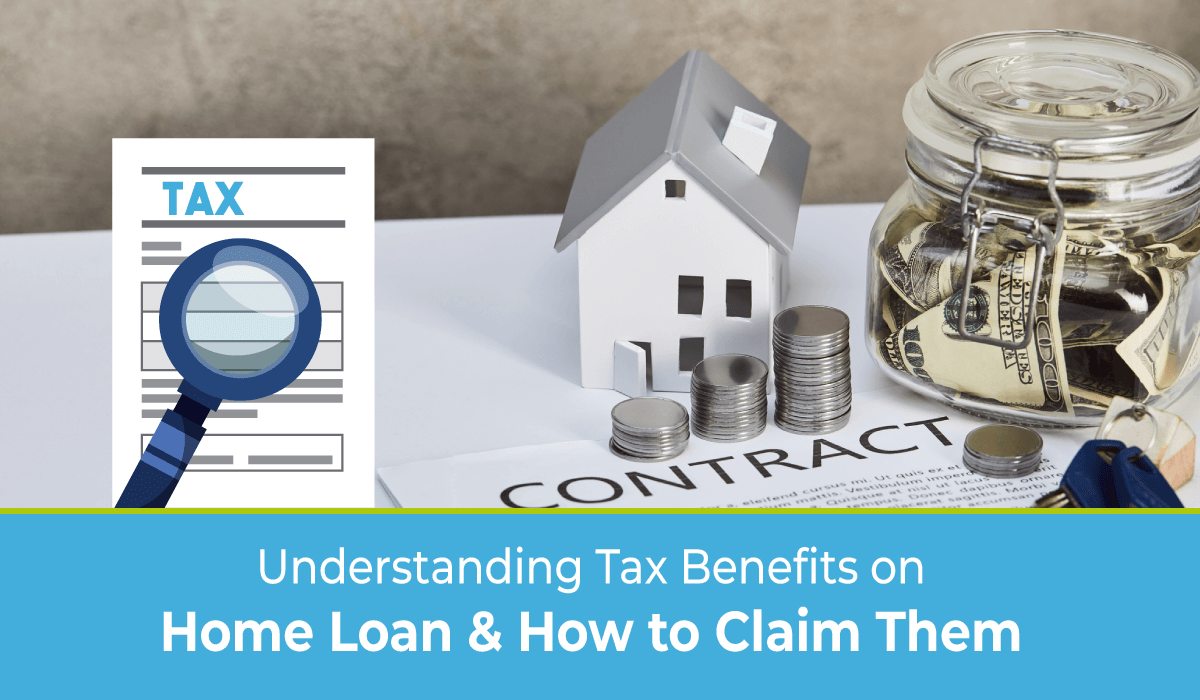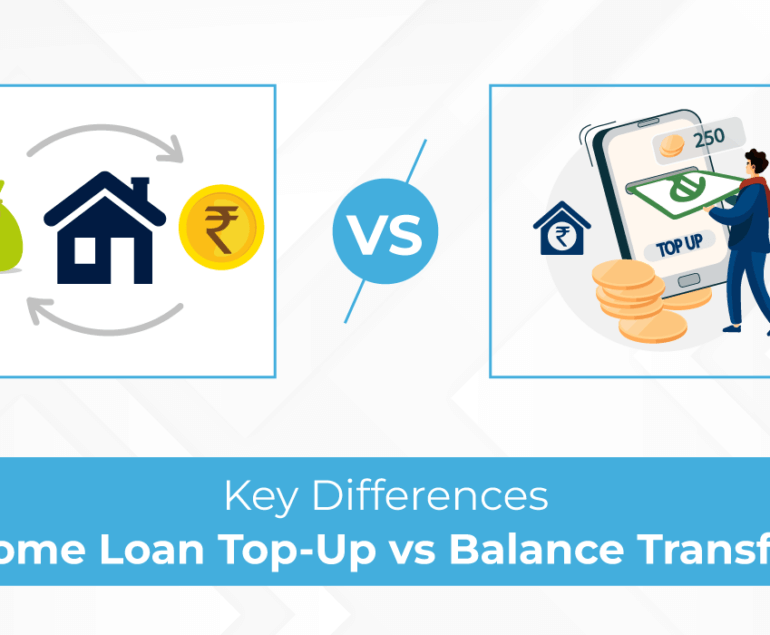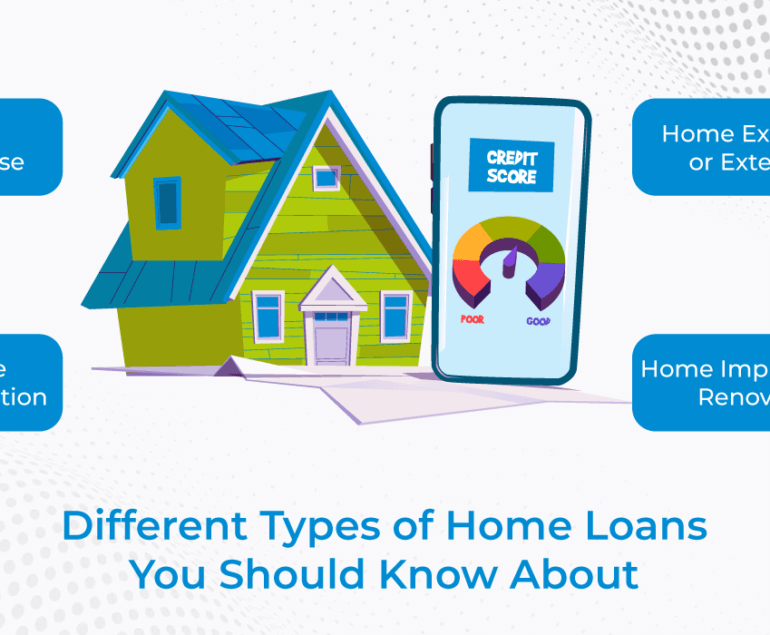The government of India aims to provide its masses with a myriad of income tax benefits on home loans, making it possible for all citizens to enjoy the dream of home ownership. The most significant benefit of owning a home is that the loan you take out for the house comes with several tax advantages.
In order to obtain home loan tax benefits people have to start by making wise investments. The tax benefits associated with home loans represent a long-term investment that provides you with tax breaks for a longer period. Under Section 80C of the Indian Revenue Code (IRC), a home loan may be eligible for a tax deduction.
To encourage its citizens to buy a home, the Indian government offers tax savings on home loans. In this article, we discussed the tax benefits of home loans and how you can claim them.
Unlock the Full Potential of Your Home Loan: Learn How Tax Benefits Work and Claim Them Today to Maximize Your Savings!
6 Types Of Tax Deductions on Home Loan
According to an announcement made by the Union Minister of India in 2020-21, there would be an extension of income tax rebates for home loans until 2024, ensuring both new and existing income tax rebates on home loans would continue to be available during this period.
Home loan tax deductions fall into the following categories:
1. Deduction on Home Loan Interest Rates during Pre-construction Phase
Section 24b allows you to claim home loan benefits in income tax on the interest you pay. This interest can be claimed during the pre-construction phase. If you applied for a home loan while your property was being constructed and accumulated interest rates during this phase, it’s possible for you to deduct this interest through five equal instalments.
2. Deduction on the repayment of the principal loan amount
Your EMI payment includes two components: the principal amount and the interest amount. Section 80 C of the Income Tax Act of 1961 allows you to deduct the principal payment on an EMI if you own a self-occupied property. The property you own in which your parents reside or in which you live can also be considered self-occupied.
Tax deductions of up to 1.5 lakh are on principal payments made in EMIs for two houses purchased with home loans. If you rent out the second house you own, that is considered a let-out property, which would still qualify you for the home loan tax benefit. Additionally, you can claim your stamp duty and registration fees.
3. Deduction on the payment of interest
The home loan interest tax exemption also counts as a tax deduction. A taxpayer who owns and occupies a self-occupied home can claim a tax benefit on loan payments up to 2 lakhs under section 24 of the Income Tax Act. A person who owns a second house for which they want to take advantage of the home loan deduction cannot allow themselves to deduct more than two lakhs in a financial year.
When renting a property, there is no maximum limit on interest claims. However, the loss you can claim under the Income from House Property tax return is limited to a maximum of Rs 2 lakhs. If you have any remaining loss, you can carry it forward for eight years so that it can be adjusted against your income from house properties.
4. Additional deduction under section 80EE
The benefits for this deduction can be claimed by home owners whose loan was sanctioned between 1st April 2016 to 31st March 2017. You can not only claim a tax deduction of Rs. 2 lakh for interest paid under section 80EE, but might also get to claim a further deduction of Rs. 50,000 if you meet their criteria. We have listed two primary criteria below.
- Property worth at least Rs. 50 lakhs should be pledged as collateral for the loan, which cannot exceed Rs. 35 lakhs.
- The deduction is only available to first-time home buyers and residential properties.
5. Extra deduction under section 80EEA on an affordable house
Similar to 80EE, the benefits of 80EEA can be claimed by home owners who submitted their loan application between April 1, 2019, and March 31, 2022. If you are paying home loan interest, you can claim an additional deduction of Rs. 1.5 lakh on your income tax return. According to Section 80EEA of the IRC, to qualify for the home loan tax credit, you must meet a certain set of requirements listed below:
- In the case of residential property, a stamp value of 45 lakhs should be the maximum.
- You must be a first-time homebuyer on the approval date to be approved for the loan.
- This section is not applicable if you are eligible for deduction under section 80EE.
The government makes frequent amendments to the Section 80EE and 80EEA. So, you’ll need to check with official websites such as income tax India and MCA Gov website.
6. Deductions on joint home loans
A joint home loan will allow each borrower to claim a deduction at the time of repayment for repayable interest up to 2 lakhs, under Section 24(b), and a deduction at the time of principal repayment up to Rs. 1.5 lakh under Section 80C. Compared to a home loan based on a single applicant, this increases the number of deductions available. Both applicants will be considered co-owners if they own the property and pay the EMIs.
Does this information make you want to check your credit scores so that you can claim these tax benefits on home loans? Then our informative guide on Credit Scores for home loans should prove to be useful.
Also Read : 9 Different Types of Home Loans You Should Know About
How to claim home loan tax benefits?
It is easy to claim tax benefits on a home loan. Follow the steps below to claim your deduction.
- Decide on the tax deduction you will claim.
- The property must be yours, or you must be a co-borrower.
- The home loan interest certificate should be provided to your employer as a source adjustment for tax deductions.
- Unless you follow the previous step, you must file your tax return.
- A self-employed person doesn’t need to submit these documents anywhere. It would be best to keep them on hand for future concerns from the income tax department.
Unlock the Full Potential of Your Home Loan: Learn How Tax Benefits Work and Claim Them Today to Maximize Your Savings!
Conclusion
Potential home buyers can save a lot of money when they take advantage of income tax rebates on their home loans. With the extensive scope of the exemption on housing loans discussed above, it is an excellent idea, even from an investment point of view, to purchase a new home.
Here at Real Money Solutions, we have a team of the most efficient home loan agents in Mumbai that can guide you in finding the best home loan at the right interest rate for your needs.




